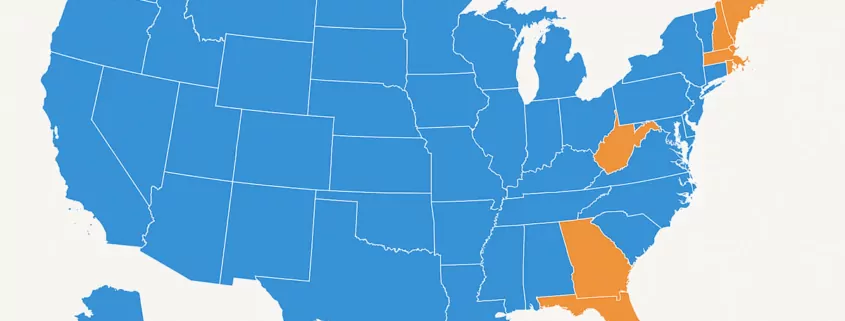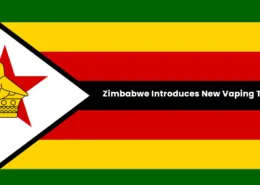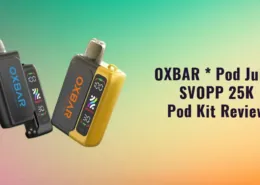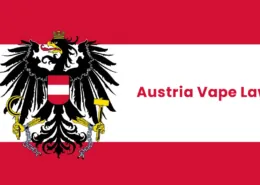PMTA Registries vs. Flavor Bans – What’s Happening in 2025?
The landscape for vaping products in the United States is more dynamic and complex than ever. As of April 9, 2025, state legislatures across the country are actively debating and enacting laws that could fundamentally reshape the market. Two dominant, yet distinct, regulatory trends have emerged, creating uncertainty and high stakes for consumers, manufacturers, and retailers alike: the rapid proliferation of state-level Premarket Tobacco Product Application (PMTA) registry laws and the continued push for comprehensive flavor bans. Understanding these trends, the forces driving them, and their potential impacts is crucial for anyone involved in the vaping space. This post dives into the current state of play, examining key legislative battles and what they signify for the future of vaping in the U.S.1
The PMTA Registry Wave: The New Market Gatekeeper?
A significant shift in state-level vape regulation involves the rise of PMTA registry laws. Unlike flavor bans that target product characteristics, these laws focus on federal authorization status. Essentially, states enact laws requiring e-cigarette products to be listed on an official state registry to be legally sold. To get on this list, a product typically needs one of the following:
- Full marketing authorization from the FDA via the rigorous PMTA process.
- A timely submitted PMTA that is still under active review by the FDA.
- (In some states) An FDA Marketing Denial Order (MDO) that is currently being legally challenged in federal court.
Manufacturers must apply for listing, certify their products meet the criteria (under penalty of perjury), and often pay substantial annual fees per product SKU.
The Big Tobacco Connection: Observers note that this legislative push has been heavily championed and lobbied for by the nation’s largest tobacco companies, Altria and R.J. Reynolds. Coincidentally, all currently FDA-authorized vaping products (NJOY, Vuse, Logic) are owned by these companies or Japan Tobacco. By advocating for laws that make FDA authorization the primary gatekeeper for market access, these corporations—which possess the immense resources needed to navigate the PMTA process—effectively create significant hurdles for the smaller, independent manufacturers that historically drove innovation in the vaping sector. This strategy appears designed to consolidate the legal market around their existing product portfolios.
Where It’s Happening: This registry model is gaining ground rapidly. As of early April 2025, eleven states (Alabama, Louisiana, Oklahoma, Wisconsin, Florida, Iowa, Kentucky, North Carolina, Utah, Virginia, and Mississippi) have enacted such laws, though implementation is temporarily blocked by courts in Iowa and Utah. Bills have been introduced or considered in dozens of other states, indicating a strong, coordinated push for this regulatory approach, even seeing recent introductions by Democratic lawmakers who traditionally favored flavor bans.
The Persistent Push for Flavor Bans: Protecting Youth or Harming Adults?
While PMTA registries gain traction, the long-standing strategy of banning flavored e-cigarette products remains a priority for many public health organizations and tobacco control groups. Their primary motivation centers on curbing youth vaping rates. The argument is that flavors like fruit, candy, and menthol are particularly appealing to adolescents, masking the harshness of nicotine and acting as an entry point to potential addiction. Legislative proposals, like Hawaii’s HB 756, often cite data showing most youth initiate tobacco use with flavored products and highlight the significant public health burden of tobacco-related diseases. Concerns over easily concealable flavored nicotine pouches are also increasingly part of this discussion.
However, flavor bans face strong opposition, primarily centered on potential unintended consequences for adult smokers. Key counterarguments include:
- Risk of Relapse: Banning the flavored nicotine products that helped adults switch from smoking could drive them back to far more harmful combustible cigarettes.
- Adult Appeal: Non-tobacco flavors are crucial for many adults to successfully transition away from the taste of traditional cigarettes.
- Economic Impact: Bans severely impact small businesses, particularly dedicated vape shops whose customer base largely prefers flavored options. Retailers in states like Georgia have expressed grave concerns about the viability of their businesses under such restrictions.
This ongoing debate highlights a core tension in tobacco control: how to effectively prevent youth initiation without hindering adult access to potentially less harmful alternatives.
Snapshot of State Legislative Battlegrounds in 2025
The interplay between these regulatory approaches is evident in legislative activity across numerous states. Here’s a brief look at developments in key states:
- Arizona (SB 1272 – PMTA Registry): This bill advanced through Senate committees with bipartisan support, proposing a state directory and potentially integrating vape regulation with alcohol control frameworks. Its final fate is pending further Senate action.
- Arkansas (SB 252 – PMTA Registry): This bill successfully passed both the House and Senate and was ordered enrolled, indicating strong legislative intent to implement a PMTA registry focused on youth safety and health risk awareness.
- Georgia (HB 577 – PMTA Registry): Known as the “Georgia Nicotine Vapor Products Directory Act,” this bill passed the House decisively and is now under consideration in the Senate. Its implementation hinges on state budget appropriations.
- Hawaii (HB 756 – Flavor Ban): Aiming for a comprehensive ban on flavored nicotine products (including menthol), this bill passed the House and has been referred to multiple Senate committees, reflecting a strong push for flavor restrictions driven by youth vaping concerns.
- Idaho (HB 244 – Other/Illegal Brand List): Referred to a House committee, this bill takes a different tack. Instead of a PMTA-based registry, it seeks to create a list banning brands already flagged by the FDA for non-compliance (warning letters, import alerts, seizures).
- Illinois (Multiple Bills): Illinois showcases the complexity, with competing proposals:
- SB 2231 (PMTA Registry): Advancing in the Senate, seeks state registration of products.
- HB 3191 (Flavor Ban): Re-referred to House Rules, proposes banning flavored e-cigs and imposing a tax.
- HB 2634 (Manufacturer Certification): Held on the House calendar, requires certification related to FDA submissions for certain older products.
- Indiana (HB 1650 – PMTA Registry): Referred to a House committee, this bill proposes requiring manufacturer certification based on FDA status and establishing a state directory, effectively limiting sales to listed products.
- Maryland (SB 918 / HB 1441 – PMTA Registry): Companion bills undergoing committee hearings aim to establish manufacturer certifications and a public directory, prohibiting sales from unlisted manufacturers.
- NEVADA (SB 435 – PMTA Registry): AN ACT requiring the Department of Taxation to create, maintain and make available a directory of manufacturers of vapor products and all vapor products.
Glimmers of Alternative Approaches?
While restrictive trends dominate, a few legislative efforts offer different perspectives. In Kentucky, proposed bills aim to suspend the state’s recently enacted PMTA registry law, representing a direct pushback against that model. Similarly, Rhode Island is considering bills (notably SB 543, supported by CASAA) that would amend its flavor ban to allow flavored product sales exclusively within licensed vape shops – an attempt at compromise balancing youth prevention and adult access. These examples, though less common, indicate that the regulatory path forward is not monolithic and alternative solutions are still being debated.
Navigating the Maze: What Does This Mean for Vapers and the Industry?
The current regulatory environment is undeniably complex and challenging for all stakeholders. The dual pressures of potential flavor bans and mandatory PMTA registries create significant uncertainty.
- Market Consolidation: PMTA registry laws strongly favor large companies with FDA-authorized products, potentially squeezing out smaller innovators and drastically reducing product diversity.
- Consumer Access: Both flavor bans and restrictive registries limit the choices available to adult consumers, potentially impacting those who rely on specific products (especially flavors) to stay off cigarettes.
- Business Viability: Small businesses, from manufacturers to vape shops, face increased compliance costs, shrinking product portfolios, and existential threats depending on which regulations are enacted in their state.
- Illicit Market Risks: Overly strict regulations on legal products may inadvertently fuel demand for unregulated products from the black market, posing unknown safety risks.
- The Need for Engagement: Staying informed about rapidly changing state laws is crucial. Advocacy efforts, whether through organized groups like CASAA or direct contact with legislators, are vital for ensuring that the perspectives of consumers and industry members are considered during policy debates. Understanding the nuances of proposed bills and their potential real-world impact is the first step toward effective participation.
The future trajectory remains unclear. Will the PMTA registry model become the national standard? Will flavor bans continue to gain traction despite concerns about adult smokers? Or will more nuanced approaches find favor? Only continued vigilance and active engagement by all stakeholders will shape the answers.
Appendix: Comprehensive Table of State E-cigarette Related Bills (Status as of 2025)
| State | Bill Number | Bill Type | Status (as of April 9, 2025) | Key Provisions | CASAA Call to Action |
|---|---|---|---|---|---|
| Arizona | SB 1272 | PMTA Registry | Advanced in Senate committees | Vapor products regulation; directory | No |
| Arkansas | SB 252 | PMTA Registry | Passed Both Chambers (Enrolled) | Inform public of health risks; ensure youth safety | No |
| Georgia | HB 577 | PMTA Registry | Passed House; In Senate Committee | Georgia Nicotine Vapor Products Directory Act | No |
| Hawaii | HB 756 | Flavor Ban | Passed House; In Senate Committees | Prohibit flavored nicotine products | No |
| Idaho | HB 244 | Other (Illegal Brand List) | In House Committee | Establish illegal electronic smoking devices brand list | No |
| Illinois | SB 2231 | PMTA Registry | In Senate Committee (Deadline 4/11) | Electronic cigarette registration with Dept. of Revenue | No |
| HB 3191 | Flavor Ban | Re-referred to House Rules Committee | Ban Flavored e-cigarettes; Impose Tax | No | |
| HB 2634 | Other (Manuf. Certification) | Held on House 2nd Reading Calendar | Requires manufacturer certification of non-adulteration | No | |
| Indiana | HB 1650 | PMTA Registry | In House Committee | Requires PMTA-related certification and directory | No |
| Maryland | SB 918 | PMTA Registry | Hearing Held in Senate Committee | Business Regulation – ESD Manufacturers – Certifications | No |
| HB 1441 | PMTA Registry | Hearing Held in House Committee | Business Regulation – ESD Manufacturers – Certifications | No |
- State E-Cigarette Registry Bills and What to Make of Them, https://www.publichealthlawcenter.org/commentary/240201/2/1/24-state-e-cigarette-registry-bills-and-what-make-them ↩︎







